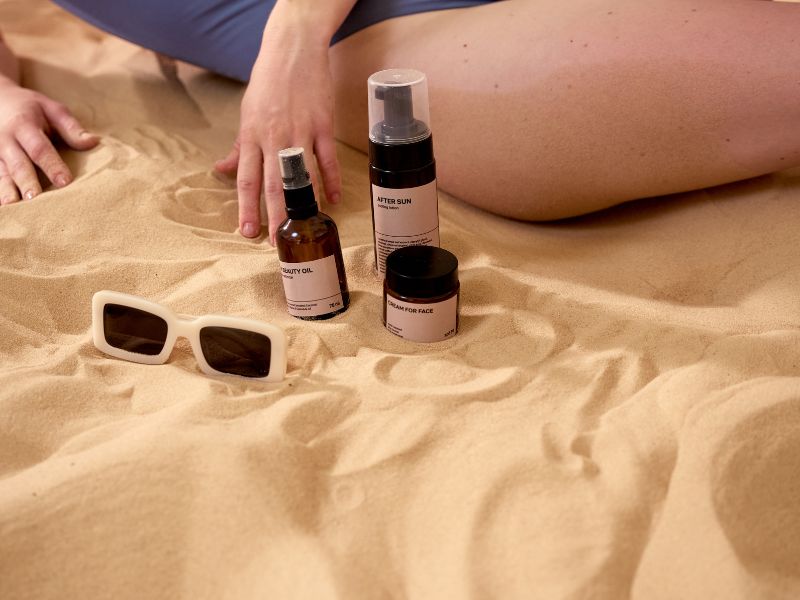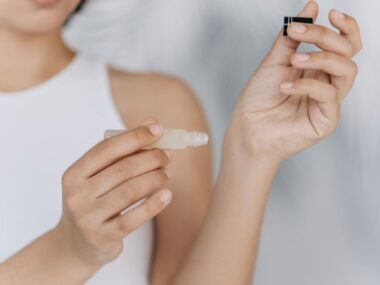Sunscreen is a staple of modern skincare routines, primarily applied to protect skin from harmful ultraviolet (UV) radiation during the day. But as night skincare trends evolve, a question has surfaced among skincare enthusiasts: “Is sunscreen good at night?” Some people wonder if sunscreen could offer skin benefits overnight or as part of a nighttime routine. This article examines current research and expert opinions to clarify whether applying sunscreen at night has any potential benefits—or drawbacks.
Understanding Sunscreen and Its Purpose
Sunscreen’s primary function is to protect skin from UV radiation, specifically UVA and UVB rays. UVB rays are primarily responsible for sunburn and are strongest during daylight hours, while UVA rays penetrate the skin more deeply and contribute to premature aging and skin damage, including hyperpigmentation and the breakdown of collagen and elastin fibers.
Sunscreens are formulated with active ingredients, either chemical (organic) filters or physical (inorganic) filters. Chemical sunscreens use ingredients like oxybenzone or avobenzone, which absorb UV radiation and convert it into heat. Physical sunscreens, like zinc oxide or titanium dioxide, sit on the skin’s surface and reflect UV rays. The question arises: if sunscreen’s purpose is to protect against sunlight, does it serve any use after dark?
Reasons Some People Consider Using Sunscreen at Night
- Misconception About Blue Light Protection
Some believe that sunscreen may protect against blue light emitted from devices like smartphones, tablets, and computers, even at night. While blue light has been shown to have minimal impact on the skin, the amount emitted by devices is relatively low compared to natural sunlight. Although some sunscreens advertise blue light protection, dermatologists generally agree that wearing sunscreen solely for blue light protection, especially at night, is unnecessary. - Antioxidant Benefits in Sunscreens
Some sunscreens contain antioxidants like vitamin E, vitamin C, or green tea extract. These antioxidants help to neutralize free radicals generated by UV exposure, but their function is closely linked to sun exposure. While antioxidants benefit the skin and are often found in serums and moisturizers, using a product that combines antioxidants with sunscreen ingredients at night isn’t necessary, as dedicated antioxidant serums can serve this purpose without the additional SPF components. - Perceived Benefits for Skin Conditions
For those with skin conditions like hyperpigmentation or melasma, UV protection is vital because even a small amount of UV exposure can exacerbate these conditions. However, once the sun goes down, sunscreen loses its main advantage, as there are no UV rays present to trigger further pigmentation. Dermatologists recommend using night treatments with ingredients like retinoids, hydroquinone, or niacinamide for these skin concerns instead of sunscreen.
Potential Drawbacks of Applying Sunscreen at Night
- Clogged Pores and Breakouts
Sunscreens, especially chemical formulas, are designed to stay on the skin’s surface, providing a protective barrier against UV rays. Wearing these at night can potentially clog pores, leading to breakouts and skin irritation. This is particularly a concern for those with acne-prone or sensitive skin, as sunscreen is formulated to be removed after daily wear. Most dermatologists recommend opting for a gentle, non-comedogenic moisturizer at night instead of sunscreen. - Ineffective Ingredients in a Non-UV Environment
Some active ingredients in chemical sunscreens, such as avobenzone, are specifically designed to react with UV light. Without UV exposure, these ingredients provide no real benefit. Over time, wearing sunscreen without washing it off properly can lead to skin irritation or allergic reactions due to residue buildup. - Excessive Skin Care Layers
For individuals already using a nighttime skincare routine, adding sunscreen to the mix can create excessive layers of products on the skin. Effective nighttime skincare often involves layers of serums, treatments, and moisturizers tailored to rejuvenate the skin. Adding sunscreen on top could disrupt the efficacy of these products or lead to skin issues from product overload. - Unnecessary Expense and Waste
Applying sunscreen at night is not only unnecessary but also wasteful. Sunscreen products can be costly, especially higher SPF formulations and those with specific ingredients like antioxidants. Using it at night when UV protection isn’t required can add up in terms of expense and product waste.
Expert Recommendations on Nighttime Skincare
- Moisturization Over UV Protection
Dermatologists generally recommend focusing on hydration and nourishment for nighttime skincare. Overnight, the skin goes through a reparative process, making it an ideal time to use products with hydrating ingredients, such as hyaluronic acid or glycerin. For those with dry skin, a rich moisturizer can aid in moisture retention, while oily skin types may benefit from a lightweight, non-comedogenic product. - Repair-Focused Ingredients
Nighttime is also the best time to use products that promote skin repair and rejuvenation. Retinoids, for example, are highly effective at night as they increase cell turnover and stimulate collagen production. Vitamin C is another popular nighttime ingredient that can help brighten the skin and reduce dark spots. Sunscreen interferes with the absorption of these active ingredients, so dermatologists recommend keeping sunscreen out of the nighttime routine. - Antioxidants Without SPF
While some sunscreens include antioxidants, many experts suggest opting for a serum with a higher concentration of these ingredients instead. Antioxidant serums are designed to absorb into the skin and combat free radical damage. Applied at night, they complement the skin’s natural repair process and do not require the addition of SPF. - Cleanse and Refresh
Cleansing at night is essential to remove sunscreen and makeup residues, pollution, and other impurities accumulated during the day. A good cleanser will ensure that the skin is free from any leftover sunscreen particles, which could otherwise clog pores overnight.
Situations Where Sunscreen at Night May Be Acceptable
While sunscreen is generally unnecessary at night, there are a few unique cases where it might be considered:
- Sunburn Recovery: After a sunburn, some dermatologists suggest applying a broad-spectrum sunscreen for added protection as the skin recovers, even indoors. However, this is typically during the day and not at night.
- Extended Outdoor Activities in Certain Climates: For people in areas with long summer days or northern locations with significant twilight hours, late evening sun exposure may warrant sunscreen for a brief time after sunset. This is specific to regions experiencing extended daylight and UV exposure late into the evening.
Common Myths and Misconceptions
- Blue Light Damage at Night
The concern around blue light damage from screens is often exaggerated. While blue light can cause minimal skin stress, the amount emitted from screens is significantly lower than natural sunlight exposure. There is no substantial evidence suggesting that nighttime screen use warrants sunscreen application. - 24-Hour Protection Concept
Some people believe that keeping sunscreen on 24/7 will provide continuous protection. However, sunscreen is designed to be reapplied throughout the day and removed at night. Keeping it on continuously could lead to irritation and compromise the skin’s natural repair cycle.
Conclusion
In conclusion, applying sunscreen at night does not provide additional benefits and may even have drawbacks for your skin health. Sunscreen’s primary purpose is to protect against UV radiation, which is absent at night. Instead, the best nighttime routine involves hydration, active ingredients for skin repair, and antioxidants, none of which require SPF. Using sunscreen in the evening can lead to clogged pores, skin irritation, and unnecessary expenses.
For optimal skincare, a clear division between day and night routines is essential. Daytime skincare focuses on protection (using sunscreen), while nighttime skincare emphasizes repair and hydration. So, while sunscreen is invaluable during the day, leave it out of your nighttime routine for the best skin results.






